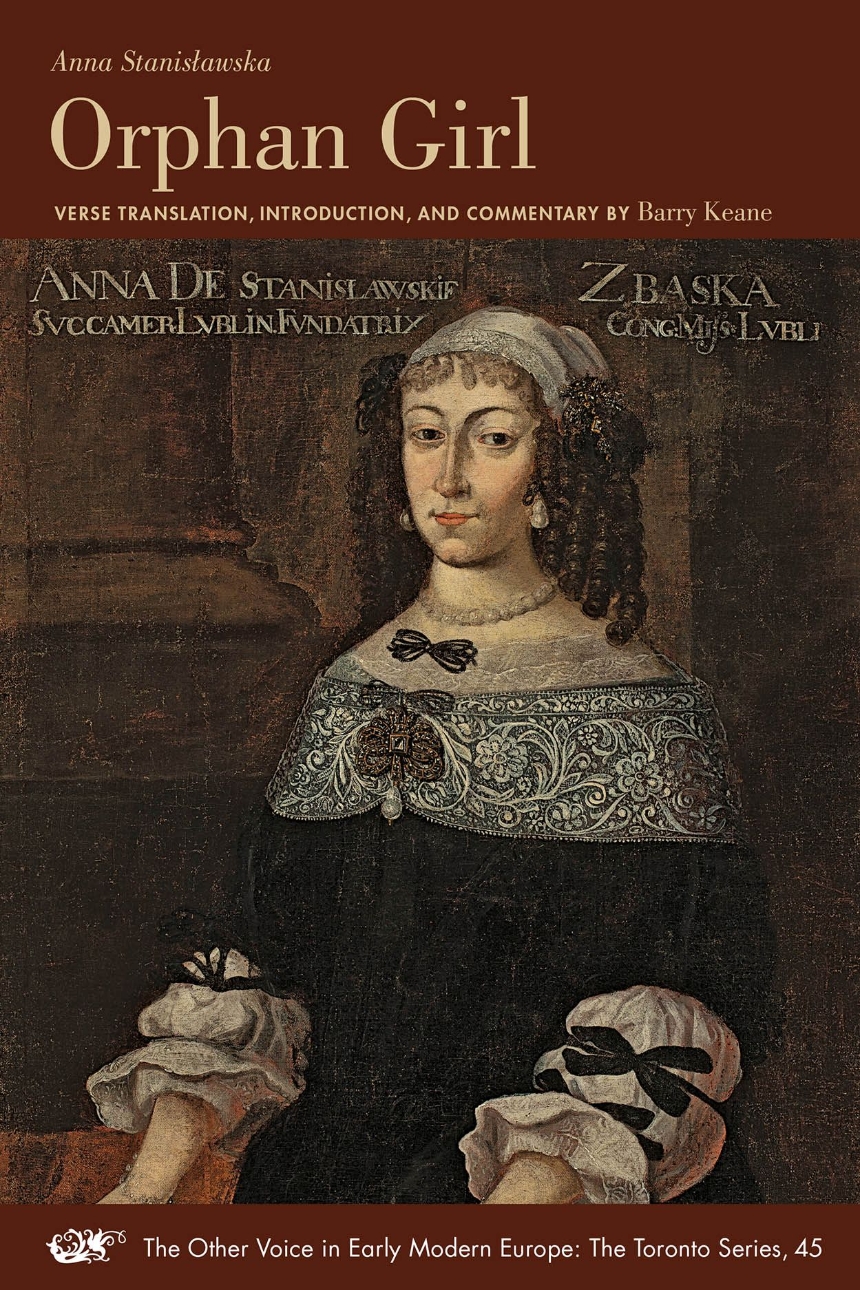Orphan Girl
A Transaction, or an Account of the Entire Life of an Orphan Girl by way of Plaintful Threnodies in the Year 1685. The Aesop Episode
9780866985475
9780866987196
Distributed for Iter Press
Orphan Girl
A Transaction, or an Account of the Entire Life of an Orphan Girl by way of Plaintful Threnodies in the Year 1685. The Aesop Episode
Writing years after terrible events which colored her life forever, Anna Stanislawska (1651-1701) meticulously reconstructed in an epic poem the episode of her forced marriage to the deviant son of the Castellan of Kraków. He was deemed to be so ugly that Stanislawska called her new husband Aesop, who was said to have been one of the ugliest men in Antiquity.
Barry Keane's idiomatic and inventive verse translation brings to life this half-forgotten poetic account of a remarkable tale of triumph in the face of overwhelming oppression and allows Anna Stanislawska to take her place among the women poets of early modern Europe.
Barry Keane's idiomatic and inventive verse translation brings to life this half-forgotten poetic account of a remarkable tale of triumph in the face of overwhelming oppression and allows Anna Stanislawska to take her place among the women poets of early modern Europe.
129 pages | 6 x 9 | © 2016
The Other Voice in Early Modern Europe: The Toronto Series
Literature and Literary Criticism: Romance Languages
Women's Studies:

